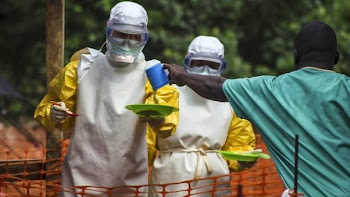The Vice captain of the Super Eagles, Vincent Enyeama has been named in the GOAL.COM’s TOP 50 footballers in the world 2014 – Spot 27.
Vincent Enyeama becomes the first Nigerian to ink his name in the exclusive list of outstanding footballers since its inception six years ago. The Goal 50 is a prestigious, annual award that recognises and ranks the world’s 50 best footballers of the season.
Check out the complete list below and big up to Africa Reps – Yaya Toure (19), Vincent Enyeama (27), Asamoah Gyan (35).
1. Cristiano Ronaldo (Real Madrid)
2. Arjen Robben (Bayern Munich)
3. Lionel Messi (Barcelona)
4. Philipp Lahm (Bayern Munich)
5. Thomas Muller (Bayern Munich)
6. James Rodriguez (AS Monaco)
7. Luis Suarez (Liverpool)
8. Thibaut Courtois (Atletico Madrid)
9. Arturo Vidal (Juventus)
10. Sergio Ramos (Real Madrid)
11. Zlatan Ibrahimovic (Paris Saint-Germain)
12. Ivan Rakitic (Sevilla)
13. Angel di Maria (Real Madrid)
14. Diego Costa (Atletico Madrid)
15. Marco Reus (Borussia Dortmund)
16. Toni Kroos (Bayern Munich)
17. Robert Lewandowski (Borussia Dortmund)
18. Aaron Ramsey (Arsenal)
19. Yaya Toure (Manchester City)
20. Miralem Pjanic (AS Roma)
21. Mats Hummels (Borussia Dortmund)
22. Manuel Neuer (Bayern Munich)
23. Keylor Navas (Levante)
24. Diego Godin (Atletico Madrid)
25. Javier Mascherano (Barcelona)
26. Gareth Bale (Real Madrid)
27. Vincent Enyeama (Lille)
28. Juan Cuadrado (Fiorentina)
29. Eden Hazard (Chelsea)
30. Neymar (Barcelona)
31. Joel Campbell (Olympiakos)
32. Blaise Matuidi (Paris Saint-Germain)
33. Enzo Perez (Benfica)
34. Charles Aranguiz (Internacional)
35. Asamoah Gyan (Al Ain)
36. Daley Blind (Ajax)
37. Gervinho (AS Roma)
38. Paul Pogba (Juventus)
39. Rafael Marquez (Leon)
40. Abdelmoumene Djabou (Club Africain)
41. Robin van Persie (Manchester United)
42. David Silva (Manchester City)
43. Ciro Immobile (Torino)
44. Serge Aurier (Toulouse)
45. Yoshito Okubo (Kawasaki Frontale)
46. Matt Besler (Sporting Kansas City)
47. Caner Erkin (Fenerbahce)
48. Nadir Belhadj (Al-Sadd)
49. Kim Shin-Wook (Ulsan Hyundai)
50. Tim Cahill (New York Red Bulls)

Vincent Enyeama becomes the first Nigerian to ink his name in the exclusive list of outstanding footballers since its inception six years ago. The Goal 50 is a prestigious, annual award that recognises and ranks the world’s 50 best footballers of the season.
Check out the complete list below and big up to Africa Reps – Yaya Toure (19), Vincent Enyeama (27), Asamoah Gyan (35).
1. Cristiano Ronaldo (Real Madrid)
2. Arjen Robben (Bayern Munich)
3. Lionel Messi (Barcelona)
4. Philipp Lahm (Bayern Munich)
5. Thomas Muller (Bayern Munich)
6. James Rodriguez (AS Monaco)
7. Luis Suarez (Liverpool)
8. Thibaut Courtois (Atletico Madrid)
9. Arturo Vidal (Juventus)
10. Sergio Ramos (Real Madrid)
11. Zlatan Ibrahimovic (Paris Saint-Germain)
12. Ivan Rakitic (Sevilla)
13. Angel di Maria (Real Madrid)
14. Diego Costa (Atletico Madrid)
15. Marco Reus (Borussia Dortmund)
16. Toni Kroos (Bayern Munich)
17. Robert Lewandowski (Borussia Dortmund)
18. Aaron Ramsey (Arsenal)
19. Yaya Toure (Manchester City)
20. Miralem Pjanic (AS Roma)
21. Mats Hummels (Borussia Dortmund)
22. Manuel Neuer (Bayern Munich)
23. Keylor Navas (Levante)
24. Diego Godin (Atletico Madrid)
25. Javier Mascherano (Barcelona)
26. Gareth Bale (Real Madrid)
27. Vincent Enyeama (Lille)
28. Juan Cuadrado (Fiorentina)
29. Eden Hazard (Chelsea)
30. Neymar (Barcelona)
31. Joel Campbell (Olympiakos)
32. Blaise Matuidi (Paris Saint-Germain)
33. Enzo Perez (Benfica)
34. Charles Aranguiz (Internacional)
35. Asamoah Gyan (Al Ain)
36. Daley Blind (Ajax)
37. Gervinho (AS Roma)
38. Paul Pogba (Juventus)
39. Rafael Marquez (Leon)
40. Abdelmoumene Djabou (Club Africain)
41. Robin van Persie (Manchester United)
42. David Silva (Manchester City)
43. Ciro Immobile (Torino)
44. Serge Aurier (Toulouse)
45. Yoshito Okubo (Kawasaki Frontale)
46. Matt Besler (Sporting Kansas City)
47. Caner Erkin (Fenerbahce)
48. Nadir Belhadj (Al-Sadd)
49. Kim Shin-Wook (Ulsan Hyundai)
50. Tim Cahill (New York Red Bulls)

 RSS Feed
RSS Feed Twitter
Twitter







 04:54
04:54
 Unknown
Unknown













